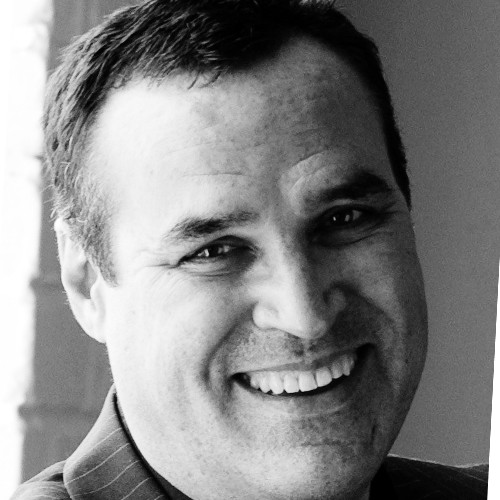Effective Backup Plans Part 1: Back to Basics
Reasonable Doubt
With David Lesperance
A contrarian expert on contingency plans for the wealthy delivers uncomfortable truths.
Over the last two years, a relatively new group of wealthy* families have started to look at alternative citizenships and residencies as a tool to protect themselves against threats to their wealth and well-being. That new group is Americans. While I have been assisting Americans on these issues for over three decades, the current level of interest is unprecedented.
This surge, and the questions that they and their advisors are asking, reminded me of how often their initial approach to this very important topic is unstructured and misguided. Therefore, I thought that this might be a good time and an ideal forum in which to set out a client-centric methodology for designing, building, and maintaining a proper Backup Plan.
To the great distress of many wealthy families throughout history, preparation for adverse events is too often either non-existent or incomplete. This fundamental failure in planning has been repeated over the centuries and, more recently, several times during the 20th century. Many families that could have avoided these existential threats with the help of a Backup Plan did not take this basic, prudent precaution. As a result, they were decimated by pogroms, world wars, various smaller wars, expulsions, genocides, civil unrest, and political instability. Sadly, many of the wealthy families lucky enough to escape alive often found themselves destitute in their adopted home countries.
As with other types of insurance, an effective Backup Plan allows a wealthy individual and family to deal with potential future negative events, whatever their source. Furthermore, an effective Backup Plan is more than a ‘lifesaver’ in times of strife; it can also allow the family to immediately take full advantage of business, education, and lifestyle opportunities in a globalized world.
The choice by my own ancestor to emigrate from France to Canada in the 1600s had a profound impact on his life as well as the lives of the subsequent generations. Similarly, a properly designed, executed, and maintained Backup Plan will be the most important factor in your descendants’ health, wealth, and happiness. With so much at stake and the cost of failure being so high, it is essential to get it right.
So, let us now look at the “Four Rules of Success” for an effective Backup Plan.
Rule 1: Your family’s situation, concerns, and goals are unique.
While there are certainly some commonalities between wealthy families from a particular country, ethnicity, or religion, each family will have just as many facets that are unique to their own particular circumstances. These might include:
- Type of threat(s) and level of urgency and concern about it/them;
- Family history for both lineage citizenship claims and family ethos;
- Number, age, ambitions, and marital status of family members;
- Liquid assets to devote to a Backup Plan;
- Annual after-tax income necessary to maintain lifestyle;
- Capital gains (amount and location);
- Business succession and estate planning;
- Potential divorce issues for all adult family members (Remember what I always say: “Tax is a percentage of Income – Divorce is a percentage of Capital”).
Rule 2: Your Backup Plan must be agreed upon at both the boardroom and the breakfast table (i.e. it must make both financial and family sense).
First, the cost of acquiring and maintaining your Backup Plan must be less than the “Cost of Failure”. The “Cost of Acquisition” can be measured in terms of both money (upfront and on-going) and physical presence. The “Cost of Failure” is the financial and personal cost to your family’s well-being and wealth arising from a single negative event or combination of simultaneous negative events.
Second, even if the benefits of your Backup Plan outweigh its costs, it must also be “livable” by the family members it is meant to protect and benefit. This requires a frank family discussion about personal and business needs, including preferences such as language, accessibility, infrastructure, schools, medical facilities, rule of law, adequate staffing, etc. Such a broad and deep discussion then allows the design of a sustainable Backup Plan with elements that make both financial, individual, and family sense.
Rule 3: The selection of a jurisdiction and/or property should be the LAST, not the FIRST decision.
Too often, the starting point for many is the idea to acquire a second passport followed by a pitch from a commissioned salesperson to buy a particular Citizenship by Investment or Residence by Investment real estate product. The potential client then tries to design a Backup Plan around this chosen product. This can be a costly mistake.
Having ignored the factors outlined in Rule #1 above, they often discover that the jurisdiction of the purchased property is either not the best or even a useful choice. Unfortunately, too often this discovery occurs when they actually try to exercise the Backup Plan and discover that it is not fit for purpose. The results can be disastrous.
The proper sequence of decision-making should be as follows:
- Review all the issues identified in Rule #1 with your team of professional advisors, including one that understands both immigration and taxation;
- Have your team of advisors work together to design your personalized Backup Plan which satisfies Rule #2; and
- Organize residence/citizenship status in the appropriate jurisdiction(s) as part of the execution of your Backup Plan.
To assist in evaluating alternative citizenship and residence by investment jurisdictions and how they might meet a family’s specific needs, I have created a handy worksheet. Once appropriate jurisdictions have been selected and the tax and other ramifications have been aligned to satisfy the family’s situation, the process of evaluating specific offerings within those jurisdictions can begin.
By first determining the family’s immediate and future needs and concerns and then selecting a program that satisfies them, one increases the likelihood that their Backup Plan will prove effective when needed. Stated another way, following the 3 Rules ensures the Backup Plan will perform as designed when faced with a crisis.
* For the purpose of this article, I define wealthy families as multi-generational and having assets (business, investments) in excess of US$20M…where the cost of a setting up and maintaining a professional back-up plan is more than covered by the financial and non-financial returns and benefits.
David Lesperance is a global leader of international tax and immigration advisors.
A published author in the field, his personal interest in these areas of law grew from his experience working as Canadian immigration and customs officer while studying law. Since being called to the bar in 1990, he has established his expertise with major law firms, his own law firm and as a private consultant. David has successfully advised scores of high and ultra high net-worth individuals and their families, many of whom continue to seek his counsel today. In addition he has provided pro bono advice to many governments on how to improve their Citizenship by Investment, Residence by Investment or Golden Visa type programs to better meet the needs of his global clients. David is supported by a team of professionals, some of whom have worked with him since the early 1990s.




